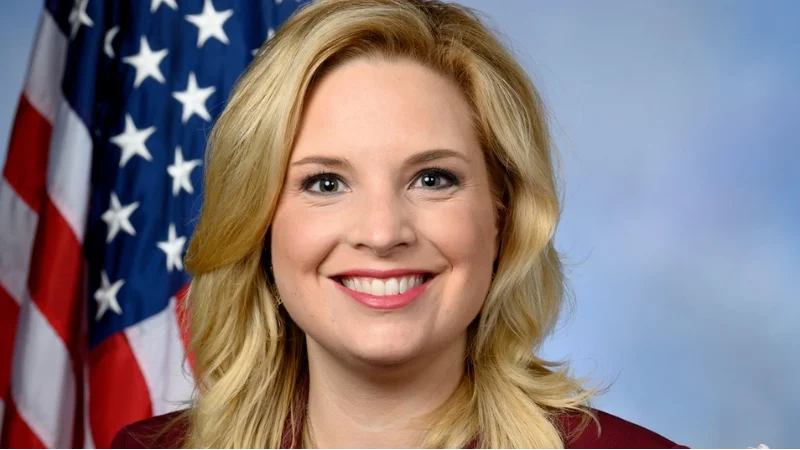Rep. Ashley Hinson, U.S. Representative for Iowa's 2nd District | Official U.S. House headshot
Rep. Ashley Hinson, U.S. Representative for Iowa's 2nd District | Official U.S. House headshot
Rep. Ashley Hinson (R-IA) has introduced a companion bill to Sen. Joni Ernst’s (R-IA) contraception access legislation as Republicans aim to counteract what they describe as “fearmongering” following controversial abortion and in vitro fertilization rulings in several states.
Hinson unveiled the Allowing Greater Access to Safe and Effective Contraception Act on Friday, which aims to increase the availability of birth control options on the market. Ernst introduced her bill last week, according to an exclusive report by the Washington Examiner.
In an interview with the Washington Examiner, Hinson stated that the bill should dispel accusations from Democrats that Republicans intend to ban contraception. “I hate the fearmongering that exists around issues like this,” Hinson said. “There is literally no threat to contraception access. We’re trying to make sure that we are helping expand access to safe oral contraceptives for adult women. It’s legal in all 50 states.”
“There was a lot of fearmongering around IVF too, and there is no bill in Congress to ban IVF either,” Hinson added. “So, I’m proud to be a leading voice on life in the Republican Party.”
Hinson first introduced this bill during the 2021-2022 Congress, though it never reached a floor vote but gained 17 co-sponsors. The newest version has three original co-sponsors: Reps. Mariannette Miller-Meeks (R-IA), Nicole Malliotakis (R-NY), and Juan Ciscomani (R-AZ). Hinson mentioned her office is engaging with members from both parties for additional support.
The current version mirrors the 2022 proposal, ensuring oral contraceptives are available over-the-counter. “The real issue here is with the FDA,” Hinson said, emphasizing that legislative action is necessary for adult women to access birth control over-the-counter while urging FDA priority review for already approved items.
A new provision directs the Comptroller General of the Government Accountability Office to study federal funding of contraceptive methods over the past 15 years, covering reimbursement, inventory, provider training, and patient education.
Ernst and Hinson’s initiative comes as Republicans seek distance from Alabama and Arizona rulings affecting women's reproductive health regarding IVF and abortion respectively.
Democrats have criticized congressional Republicans for being anti-IVF and anti-abortion—a stance GOP lawmakers have contested through legislative actions such as Rep. Anna Paulina Luna’s (R-FL) bill discouraging state prohibitions on IVF and Sens. Ted Cruz (R-TX) and Katie Britt’s (R-AL) Medicaid funding cut-off proposal for states banning IVF.
Last week saw Senate failure in passing the Right to Contraception Act—a Democratic-backed measure aiming at federal protections for contraception—while House Democrats initiated a discharge petition forcing a vote on it.
Hinson labeled Democrats’ efforts as “playing political games.” She contrasted their approach with her legislation aimed at expanding safe oral contraceptive access for adult women without mandating abortion drug access—a point she argued would hinder bipartisan support.
Instead, she promoted her act as a "uniting bill" capable of garnering bipartisan backing by addressing actual problems rather than driving political wedges.
“Our bill actually looks at solving that problem,” concluded Hinson.
This piece was originally published in Washington Examiner on June 10, 2024.



 Alerts Sign-up
Alerts Sign-up